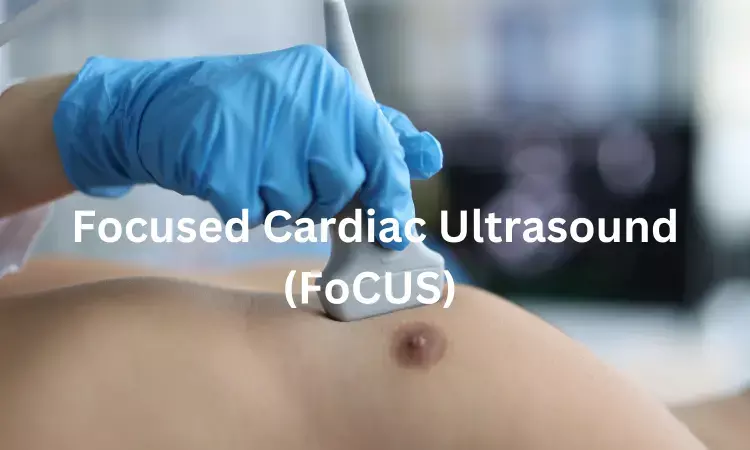- Home
- Medical news & Guidelines
- Anesthesiology
- Cardiology and CTVS
- Critical Care
- Dentistry
- Dermatology
- Diabetes and Endocrinology
- ENT
- Gastroenterology
- Medicine
- Nephrology
- Neurology
- Obstretics-Gynaecology
- Oncology
- Ophthalmology
- Orthopaedics
- Pediatrics-Neonatology
- Psychiatry
- Pulmonology
- Radiology
- Surgery
- Urology
- Laboratory Medicine
- Diet
- Nursing
- Paramedical
- Physiotherapy
- Health news
- Fact Check
- Bone Health Fact Check
- Brain Health Fact Check
- Cancer Related Fact Check
- Child Care Fact Check
- Dental and oral health fact check
- Diabetes and metabolic health fact check
- Diet and Nutrition Fact Check
- Eye and ENT Care Fact Check
- Fitness fact check
- Gut health fact check
- Heart health fact check
- Kidney health fact check
- Medical education fact check
- Men's health fact check
- Respiratory fact check
- Skin and hair care fact check
- Vaccine and Immunization fact check
- Women's health fact check
- AYUSH
- State News
- Andaman and Nicobar Islands
- Andhra Pradesh
- Arunachal Pradesh
- Assam
- Bihar
- Chandigarh
- Chattisgarh
- Dadra and Nagar Haveli
- Daman and Diu
- Delhi
- Goa
- Gujarat
- Haryana
- Himachal Pradesh
- Jammu & Kashmir
- Jharkhand
- Karnataka
- Kerala
- Ladakh
- Lakshadweep
- Madhya Pradesh
- Maharashtra
- Manipur
- Meghalaya
- Mizoram
- Nagaland
- Odisha
- Puducherry
- Punjab
- Rajasthan
- Sikkim
- Tamil Nadu
- Telangana
- Tripura
- Uttar Pradesh
- Uttrakhand
- West Bengal
- Medical Education
- Industry
AI-assisted focused cardiac ultrasound useful modality for assessment of left ventricular ejection fraction

Cardiovascular disease is the global leading cause of death worldwide, with disease prevalence increasing day by day. The rising prevalence of the disease has dramatically increased the financial burden on healthcare systems and has further constrained access to limited resources.
Focused cardiac ultrasound (FoCUS) is recently becoming standard practice in a wide spectrum of clinical settings. However there is a limited data evaluating the real-world use of FoCUS with artificial intelligence (AI) and a recent study aimed to determine the accuracy of FoCUS AI-assisted left ventricular ejection fraction (LVEF) assessment and compare its accuracy between novice and experienced users.
The study published in NPJ Digital Medicine reveals that FoCUS AI-assisted LVEF assessments provide highly reproducible LVEF estimations in comparison to formal transthoracic echocardiogram (TTE).
In this prospective, multicentre study, participants requiring a TTE were recruited to have a FoCUS done by a novice or experienced user. The AI-assisted device calculated LVEF at the bedside, which was subsequently compared to TTE.
The key findings of the study are
• A total of 449 participants were enrolled with 424 studies included in the final analysis. The overall intraclass coefficient was 0.904, and 0.921 in the novice (n = 208) and 0.845 in the experienced (n = 216) cohorts.
• There was a significant bias of 0.73% towards TTE (p = 0.005) with a level of agreement of 11.2%. Categorical grading of LVEF severity had excellent agreement to TTE (weighted kappa = 0.83).
• The area under the curve (AUC) was 0.98 for identifying an abnormal LVEF (<50%) with a sensitivity of 92.8%, specificity of 92.3%, negative predictive value (NPV) of 0.97 and a positive predictive value (PPV) of 0.83.
• In identifying severe dysfunction (<30%) the AUC was 0.99 with a sensitivity of 78.1%, specificity of 98.0%, NPV of 0.98 and PPV of 0.76.
Researchers concluded that FoCUS AI-assisted LVEF assessments provide highly reproducible LVEF estimations in comparison to formal TTE. This finding was consistent among senior and novice echocardiographers suggesting applicability in a variety of clinical settings.
They added even though TTE is the standard for determining LVEF in clinical practice, it is noted that it is “often not readily available” for immediate bedside evaluation and in low-resource settings. Assessing LVEF is fundamental in FoCUS exams.
Reference: Motazedian, P., Marbach, J.A., Prosperi-Porta, G. et al. Diagnostic accuracy of point-of-care ultrasound with artificial intelligence-assisted assessment of left ventricular ejection fraction. npj Digit. Med. 6, 201 (2023). https://doi.org/10.1038/s41746-023-00945-1.
MSc. Neuroscience
Niveditha Subramani a MSc. Neuroscience (Faculty of Medicine) graduate from University of Madras, Chennai. Ambitious in Neuro research having worked in motor diseases and neuron apoptosis is interested in more of new upcoming research and their advancement in field of medicine. She has an engrossed skill towards writing and her roles at Medical dialogue include Sr. Content writer. Her news covers new discoveries and updates in field of medicine. She can be reached at editorial@medicaldialogues.in
Dr Kamal Kant Kohli-MBBS, DTCD- a chest specialist with more than 30 years of practice and a flair for writing clinical articles, Dr Kamal Kant Kohli joined Medical Dialogues as a Chief Editor of Medical News. Besides writing articles, as an editor, he proofreads and verifies all the medical content published on Medical Dialogues including those coming from journals, studies,medical conferences,guidelines etc. Email: drkohli@medicaldialogues.in. Contact no. 011-43720751


